Friday is "Food Day":
A special report on the corn and fat based American diet by Peter Jennings:
"Obesity is fast on its way to becoming the nations largest and most costly public health problem. While much of the public debate about obesity has focused on personal responsibility, PETER JENNINGS REPORTING: HOW TO GET FAT WITHOUT EVEN TRYING reveals how federal government agricultural policies and food industry practices are contributing to Americas growing obesity epidemic.
In this program, Jennings demonstrates how more federal agricultural subsidies are going to foods that Americans should be eating less, while few subsidies go to foods we should be eating more. Jennings investigates the type of food products the packaged food industry introduces each year and finds that the vast majority of new food products are those that dietary guidelines say Americans should be eating least.
Jennings also takes a bold look at the marketing of unhealthy food to children. Studies reveal that young children are not capable of understanding the intent of advertising and Jennings questions the ethics of such marketing, raising the question: should children be protected from junk food marketing—despite the economic impact that might have on food companies and broadcast networks?
Within days of this documentary airing, schools across the country requested copies for use in their classrooms. Nutrition scholars are re-directing their research to examine the relationship of agricultural subsidies to the obesity epidemic. The Chairman of the Federal Trade Commission has indicated that food marketing is an area in which the agency will become more involved. And California legislators scheduled a screening of the program as they were considering restrictions on marketing of junk food to children."
_________________
The 'Terrible 10': The Worst Aspects Of America's Food Scene
"The first annual Food Day is October 24; it aims to bring Americans from all walks of life together to "push for healthy, affordable food produced in a sustainable, humane way," according to the Food Day website. In anticipation of the day, the Center for Science in the Public Interest has released its "Terrible Ten," a list of the 10 worst aspects of American's food scene. Although the list is not necessarily a cohesive one -- there's no obvious connection between lobbyists and vending machines -- it does highlight some of the biggest threats to a healthy food system.
Check out the "Terrible Ten" slideshow below."
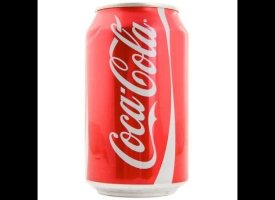
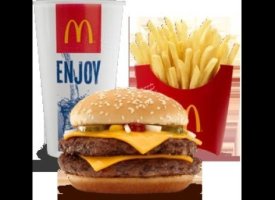
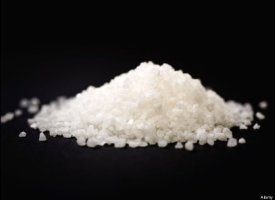
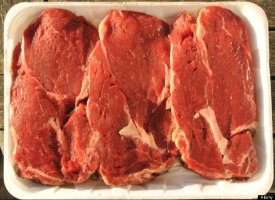
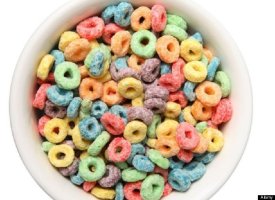


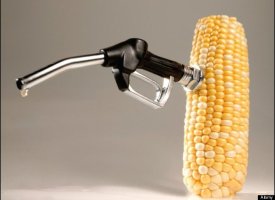
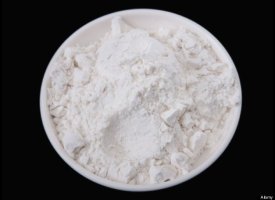

________________
Top 7 Supermarket Foods to Avoid.
"In a recent article, seven experts in the fields of both food and the environment (scientists, doctors and farmers) were asked just one simple question: “What foods do you avoid?” Their responses had nothing to do with calories or nutrient-density, but all to do with their insider knowledge on how certain seemingly “healthy” foods that they closely work with are produced and packaged. The findings are scary.
If the farmer who grows the food won’t eat it himself, then I won’t touch it either.
Here’s a summary of the findings. You can add these seven to your ‘Foods to Avoid‘ list:
1. Canned Tomatoes
An endocrinologist and expert on the topic of the synthetic oestrogen bisphenol-A (BCA), linked to heart disease and infertility, won’t go near canned tomatoes. Tin cans are lined with a resin containing BCA which is especially a problem with canning tomatoes, as the acid in tomato breaks this down in dangerous amounts. This is a serious health concern for everyone who loves a Spag Bol, especially children. My advice: if you still want the convenience of stored, ready-to-cook tomatoes, opt for sauces and passata in glass bottles.
2. Conventional Beef
For fat cows (and fat people) feed them grain, corn and soy. This is what farmers do to increase profits. The end product is meat that is nutritionally inferior. Cows were meant to eat grass. Studies show that grass-fed beef (compared to corn-fed) is higher in important vitamins, minerals and the heart-healthy, anti-inflammatory fats. Then there’s also the issue of all the antibiotics used on those inappropriately-fed, sick cows… My advice: Look for “grass-fed” or “pasture-fed” organic beef from strong healthy beasts.
3. Microwave Popcorn
Another poisonous packaging issue: Perfluorooctanoic acid (PFOA) lines the bags of those popcorn bags, and the heat in the microwave leaches this straight onto your movie munchies. The UCLA links this compound to infertility. My advice: Corn kernels + butter + sea salt + plus a big pot (with a lid!) Simple.
4. Conventional Potatoes
More than any other vegetable, non-organic potatoes are heavily sprayed with herbicides, pesticides and fungicides throughout every stage of their growth, harvesting and storage. So much so that potato growers never eat the potatoes they sell and grow their own separate plots without all the chemicals. My advice: Organic or Bio-dynamic potatoes only.
5. Farmed Salmon
This is particularly scary considering that in Australia, the only fresh Salmon we have access to is farmed; all farmed, this includes “Atlantic” Salmon. These fish are crammed in pens and fed all manner of junk from soy and hydrolyzed chicken feathers and pellets. A scientific study on fish contamination showed high levels of DDT and PCB’s (carcinogens). So serious were the findings that the director for the Institute for Health warns that any more than one salmon meal every 5 months increases your cancer risk.
Not to mention that fact that the levels of Omega 3 and Vitamin D are devoid in these poor factory-versions that their wild, up-stream-swimming ancestors contain. My advice: For fresh fish, choose small & wild varieties wherever available. For salmon in Australia, your only wild option is out of a tin. Look for brands like Paramount Wild Alaskan Salmon, or other brands form Norway and Canada are often wild too. Even still, eat these only occasionally.
6. Conventional Milk
Dairy cows today are fed growth hormones to maximize milk production. Not only does this make for a potentially breast/prostate/colon cancer milk shake, but it also leads to increased incidence of udder infection for the poor cow, leading to pus in the milk. My advice: if you do drink cows’ milk, make sure it states clearly on the label that it is produced without artificial hormones, and ideally choose organic whole milk from pasture-fed cows. (Krogers and Walmart milk is supposed to be safe)
7. Conventional Apples
There’s no coincidence that farm workers have higher rates of many cancers. Of all common fruits, apples are the most heavily and frequently doused with pesticides. Pesticide reside on conventional fruits is also linked to Parkinson’s. To limit exposure, be wary of apples especially. My advice: Organic. Or at the very least, wash and peel.
From: http://naturalsociety.com/top-7-supermarket-foods-to-avoid/
_______________
Eat real fresh corn, not processed corn.
Ken teaches you how to prepare fresh corn on the cob without those pesky corn silks.
_____________
7 Tips for Cleaning Fruits, Vegetables.
Now we have cantaloupe and bagged salads recalls:
"Federal health officials estimate that nearly 48 million people are sickened by food contaminated with harmful germs each year, and some of the causes might surprise you.
Although most people know animal products must be handled carefully to prevent illness, many don’t realize that produce can also be the culprit in outbreaks of foodborne illness.
In recent years, the United States has had several large outbreaks of illness caused by contaminated fruits and vegetables — including spinach, tomatoes, and lettuce.
Fresh produce can become contaminated in many ways. During the growing phase, fruits and veggies may be contaminated by animals, harmful substances in the soil or water, and poor hygiene among workers. After produce is harvested, it passes through many hands, increasing the contamination risk. Contamination can even occur after the produce has been purchased, during food preparation, or through inadequate storage.
FDA says to choose produce that isn’t bruised or damaged, and make sure that pre-cut items — such as bags of lettuce or watermelon slices — are either refrigerated or on ice both in the store and at home. In addition, follow these recommendations:
Wash your hands for 20 seconds with warm water and soap before and after preparing fresh produce.
Wash produce BEFORE you peel it, so dirt and bacteria aren’t transferred from the knife onto the fruit or vegetable.
Gently rub produce while holding under plain running water. There’s no need to use soap or a produce wash.
Cut away any damaged or bruised areas before preparing or eating.
Use a clean vegetable brush to scrub firm produce, such as melons and cucumbers.
Dry produce with a clean cloth or paper towel to further reduce bacteria that may be present.
Throw away the outermost leaves of a head of lettuce or cabbage.
Lewis says consumers should store perishable produce in the refrigerator at 40 degrees or below."
_____________
Bagged salad: How clean?
"Try to buy ready-to-eat salads and salad green from stores where they appear to be properly stored at cold temperatures and keep them at cold temperatures when you are storing them at home.
Wash your greens yourself when you bring them home from the store, even the prewashed or triple-washed ones. Rinse them well in clean, running water and pat them dry or use a salad spinner to remove excess water.
If you aren’t using them immediately, you can put the salad greens in a clean bag, not the same bag you bought them in. The longer the greens sit in the bags and the closer to their use-by date, the more chance the bacteria has to multiply."
_____________
Buy Organic – But What If You Can’t?
"We always urge people to buy organic, but when organic produce is not available, the benefits of consuming more fruits and vegetables will clearly out weigh the negative aspects of conventional produce.
We highly recommend that you always wash your produce before consumption, especially if it’s conventionally grown.
This recipe shows how to make your own solution for cleaning conventional produce in your own kitchen. It’s a very simple method and we use it all the time in our home:
- Fill your sink with cold water.
- Add four tablespoons of salt and the juice of one-half of a lemon (this makes a diluted form of hydrochloric acid).
- Soak fruits or vegetables for 5-10 minutes; 2-3 minutes for leafy greens; and 1-2 minutes for berries.
- Rinse well under cold water. That’s it, now continue to enjoy your freshly made juices on a daily basis and receive all the great health benefits! "
From: http://blog.jaykordich.com/2011/07/08/buy-organic-but-what-if-you-cant/
_______________
Keep Listeria Out of Your Kitchen
"Recently, a multi-state outbreak of listeriosis tied to contaminated cantaloupes has caused illnesses and deaths. Listeria has also been linked to a variety of ready-to-eat foods, including unpasteurized milk and dairy products, Mexican-style or soft cheeses made with unpasteurized milk, processed deli meats, hot dogs, smoked seafood and store-prepared deli-salads. "
More at: http://www.everydayhealth.com/fda/keep-listeria-out-of-your-kitchen.aspx
_________________
THE FAT THAT CAN MAKE YOU THIN
"They recommend a fat rich in medium-chain triglycerides (MCT).
In a recent study published in the Journal of Nutrition researchers reviewed all the published studies to date on MCT and weight management. These studies demonstrated that diets containing MCT result in an increase in energy, a rise in metabolism, increase burning of calories, decrease in food consumption, lower body fat mass, and reduce body weight.
Because of these effects, the authors of this study recommend using oils containing MCT, such as coconut oil, as a means to lose excess body fat, control weight, and even treat obesity.
One of the reasons why coconut oil is effective in reducing body fat and lowering weight is because it contains fewer calories than any other fat. For this reason, it has gained the distinction of being the world's only natural, low-calorie fat.
When you use coconut oil in your food preparation, you can eat the same types of foods as you normally do yet consume fewer calories.
The fact that coconut oil contains fewer calories, however, is not the main reason it has gained a reputation as a low-calorie fat. Its advantage in weight management is due primarily to its affect on metabolism. Medium-chain triglycerides in coconut oil are smaller than other fats and, therefore, digest very quickly, so quickly in fact, that the body uses them as an immediate source of fuel rather than pack them away in storage inside our fat cells.
MCT are used to produce energy much like carbohydrates and, therefore, they do not circulate in the bloodstream like other fats. For this reason, they do not supply fat to fat cells or contribute to weight gain."
More at: http://www.coconutresearchcenter.org/article10065.htm
________________
FDA Warns Not to Feed SimplyThick to Premature Infants
"Do not feed the thickening product called SimplyThick to infants born before 37 weeks because it may cause a life-threatening condition.
This advice to parents, caregivers, and health care providers from the Food and Drug Administration (FDA) is based on reports of infants with necrotizing enterocolitis (NEC) in which tissue in the intestines becomes inflamed and dies.
SimplyThick is a brand of thickening agent — available to consumers and medical centers—to help manage swallowing difficulties. It is sold in packets of individual servings and in 64-ounce dispenser bottles. The product can be purchased from distributors and local pharmacies throughout the United States.
Benson M. Silverman, M.D., director of FDA’s Infant Formula and Medical Foods Staff — himself a neonatologist — explains that the thickening agent is added to breast milk and infants’ formula to help the premature babies swallow their food and keep it down, without spitting up. The product is also used in older children and adults with swallowing problems caused by trauma to the throat, he notes."
More:
Simply Thick LLC recalled its thickening gel products made at a Stone Mountain, Ga., plant since June 1, 2009, because the plant didn't file paperwork with the FDA that showed the steps it took to ensure bacteria was destroyed during the manufacturing process, the FDA said. The FDA lists the products affected by the recall and how to tell if the product is included in the recall. Consumers who have the recalled gels should call the company for a refund or exchange at (800) 205-7115 or e-mail the firm.
___________________
Bravo has recalled its Pig Ears.
Bravo! is recalling its Bravo! Pig Ears Chews in the 50-count bulk box of oven-roasted pig ears because they could be contaminated with salmonella, the FDA said. So far the company hasn't received any reports of either pets or people being sickened from the chews. Included in the recall are the boxes of chews with the product code 75-121, Lot 12-06-10. The dog chews were sold on the East and West Coasts between January 1, 2011, and February 28, 2011. Consumers should return the chews to the store for a refund. Call the company at (866) 922-9222 weekdays between 9 a.m. and 5 p.m. EST.
_________________
REAL NEWSPAPER ADS
FREE YORKSHIRE TERRIER.
8 years old. Hateful little dog. Bites.
FREE PUPPIES:
1/2 Cocker Spaniel, 1/2 sneaky neighbor's dog.
FREE PUPPIES...
Mother, AKC German Shepherd.
Father, Super Dog...able to leap tall fences in a single bound.
FOUND DIRTY WHITE DOG.
Looks like a rat. Been out a while. Better be a reward.
COWS, CALVES: NEVER BRED.
Also 1 gay bull for sale.
NORDIC TRACK
$300 Hardly used, call Chubby.
GEORGIA PEACHES
California grown - 89 cents lb.
JOINING NUDIST COLONY!
Must sell washer and dryer $300.
WEDDING DRESS FOR SALE . WORN ONCE BY MISTAKE.
Call Stephanie.
AND THE BEST ONE: FOR SALE BY OWNER:
Complete set of Encyclopedia Britannica, 45 volumes
Excellent condition. $1,000 or best offer
No longer needed, got married last month.
Wife knows everything.
______________
Yesterday:
Jay didn't call, and Ray was busy helping Shay, so I was left to amuse myself in the morning, instead of working on the cargo trailer.
All I did was laundry, take care of the critter's needs, read blogs, write drafts for this blog, and research items on the internet until it was time for me to sign onto my little internet job in the afternoon. Give me a computer and I will be amused for hours. There is so much info out there, but sometimes it takes a while to sort out the wheat from the chaff!
We, the animals and I, survived the 36° the night before, quite comfortably, and the high was 76°, so it turned into a lovely "doors and windows open" day.

















4 comments:
You're having colder nights down there than we are up here. Strange!
Thanks for your comment, Sandra.
It was just one night. Last night it was 52 deg. And going to be warmer this week.
Yep Penny, that cool nice weather was just a tease. I shouldn't have gotton my hopes up. . .
Hi Dick,
Oh! I like it like this, the days are nice, not too hot.
If it is cold during the night, that is OK, as I am inside, anyway.
I hate it when it is cold during the day though, that's when I think I would like to 'snowbird' down to the RGV. (Rio Grande Valley)
Post a Comment